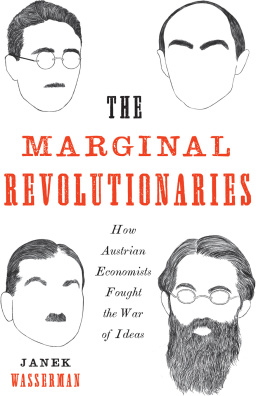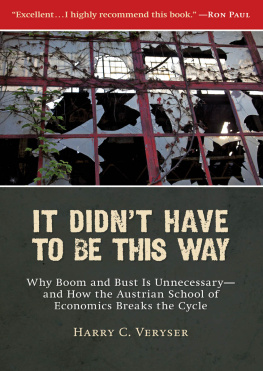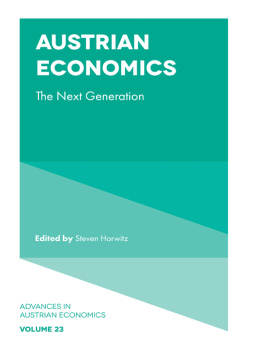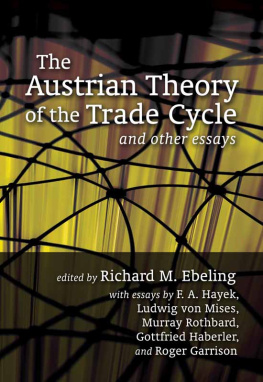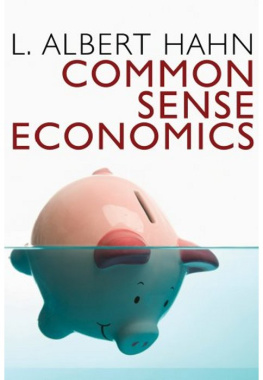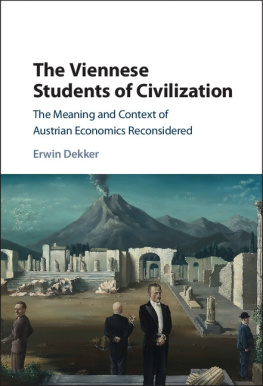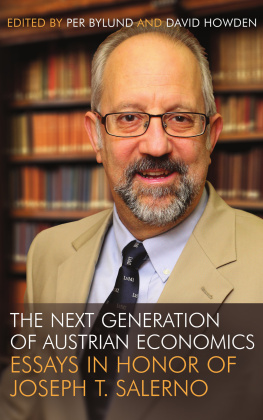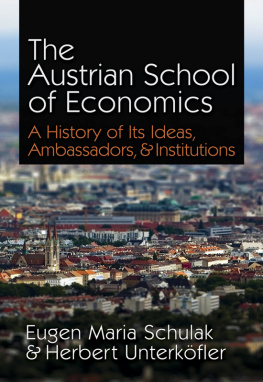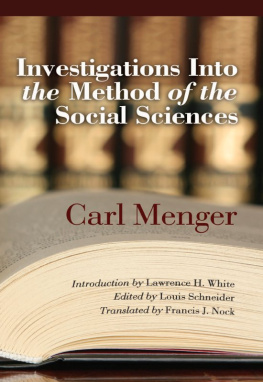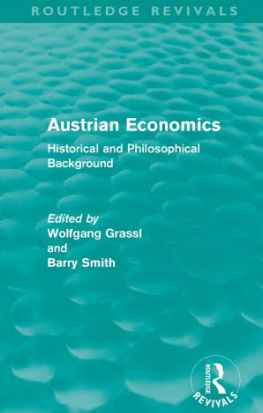THE MARGINAL
REVOLUTIONARIES

Published with assistance from the foundation established in memory of Henry Weldon Barnes of the Class of 1882, Yale College.
Copyright 2019 by Janek Wasserman.
All rights reserved.
This book may not be reproduced, in whole or in part, including illustrations, in any form (beyond that copying permitted by Sections 107 and 108 of the U.S. Copyright Law and except by reviewers for the public press), without written permission from the publishers.
Yale University Press books may be purchased in quantity for educational, business, or promotional use. For information, please e-mail (U.K. office).
Set in Galliard type by IDS Infotech Ltd., Chandigarh, India.
Printed in the United States of America.
Library of Congress Control Number: 2019934601
ISBN 978-0-300-22822-9 (hardcover : alk. paper)
A catalogue record for this book is available from the British Library.
This paper meets the requirements of ANSI/NISO Z39.48-1992 (Permanence of Paper).
10 9 8 7 6 5 4 3 2 1
TO MEGAN
CONTENTS
ACKNOWLEDGMENTS
Like all intellectual work, this book is the product of collective effort. Many individuals, groups, and institutions made the project possible, and I owe many debts of gratitude. The Botstiber Institute for Austrian-American Studies provided a fellowship that permitted me to conduct the formative archival research for the project. A fellowship from Duke Universitys Center for the History of Political Economy allowed me the time and resources to complete the manuscript. The University of Alabama Research Grants Committee and the Rockefeller Archive Center provided grants that sustained this research in its earliest stages. Yale University Press offered support for research and writing. Seth Ditchik, my editor, believed in this project before I had written a single word. Andrew Katz offered invaluable assistance with his copyedits.
I wish to thank the many libraries and archives that allowed me to use their collections. Knowledgeable librarians and archivists at every stop facilitated this work. The staffs at the Austrian National Library, Austrian State Archives, Columbia University Rare Book and Manuscript Library, David Rubenstein Rare Book and Manuscript Library at Duke University, Grove City College Library, Harvard University Archives, Hoover Institution Archives, League of Nations Archives, London School of Economics Library, Wilfrid Laurier University Archives, M. E. Grenander Department of Special Collections & Archives at SUNY-Albany, New York Public Library Manuscript and Archives Division, Rockefeller Archive Center, University College London Library, and Wienbibliothek im Rathaus offered me assistance as I worked through a wide array of materials. I would like to acknowledge the Grove City College Library for permission to cite from the Ludwig von Mises Collection. I thank the estate of F. A. Hayek for granting permission to quote from his correspondence and other materials. I am especially appreciative of the help from the Duke University and University of Alabama librarians, who tracked down any and all resources that I requested.
Over the years, I have presented portions of this research in a number of forums; the feedback I received has made this a better work. Conferences for the Austrian Studies Association, German Studies Association, History of Economics Society, Organization of American Historians, and the Society for U.S. Intellectual History proved stimulating and constructive. Invited talks at the Austrian National Bank, CenterAustria at the University of New Orleans, and Southern Methodist University alerted me to the potentially broader appeal of this subject, especially in Austria (where, to my surprise, the soon-to-be president Alexander van der Bellen was in the audience). Individual chapters and the entire manuscript went through workshops that sharpened the final product into a more cohesive whole. Dukes Center for the History of Political Economy (three times!), Southern Methodist Universitys Department of History, the Triangle Intellectual History Seminar, and the University of Alabama History Department all showed great hospitality, and they offered feedback that I have tried to incorporate. I wish to thank anonymous reviewers at Research in the History of Economic Thought and Methodology and for the Quiet Invaders edited volume for their comments.
Of course, my greatest debts are to colleagues, friends, and loved ones. Ones work is only as good as ones surrounding social circles and networks, and I am indeed fortunate to have so many exceptional people around me. Bruce Caldwell and Guenter Bischof have helped this project since its inception. Bruce invited me to Duke several times and read the entire manuscript, offering his unparalleled knowledge on Friedrich Hayek and the Austrians. Even though we disagree on some points, he has always treated my views with respect. Meanwhile, Guenter invited me to the CenterAustria, where he showed me true New Orleans hospitality. He also convened a wonderful workshop on Austrian emigration in Vienna, where I presented some of my initial findings. At the University of Alabama, Teresa Cribelli, Daniel Levine, James McNaughton, Margaret Peacock, Erik Peterson, and Alexa Tullett helped create a Geistkreis of remarkable fertility. Erik and Margaret read the entire manuscript and shaped it for the better. James offered an unmatched reading of the introduction. In Vienna, Klaus Taschwer and Hansjrg Klausinger have offered their time and expertise. Klaus has shared his knowledge of interwar German nationalism and academic antisemitism with me. He also published a kind article on my work in Der Standard. Hansjrgs amazing knowledge of interwar Austrian economics has helped me avoid factual and interpretive errors. He has commented on conference papers, articles, and book chapters over the years, always exhibiting forbearance toward my work. My own non-Austrian Austrians are Alys George, Erin Hochman, and Heather Morrison. Three better companions in the Austrian capital I cannot imagine. Erin deserves a special thanks for organizing a series of events in Dallas. Along the way, I have met a number of scholars who have become intellectual companions and fellow travelers. Venus Bivar has been a great interlocutor since we met in Sleepy Hollow. Daniel Bessner shared his ideas on modern libertarianism on many occasions. Noah Strote, a frequent caf denizen, helped keep the final drafting stages from bogging down. I am greatly obliged to Quinn Slobodian, who has shared his pathbreaking scholarship on globalism and the contemporary Right with me. He also included me in an informative GSA panel on populism that improved my own analysis immensely. Robert Leonard read the penultimate version of the manuscript, offering constructive criticism and suggestions based on his unsurpassed knowledge of interwar Viennese intellectual life and Austrian economic traditions. I hope the revisions meet with his approval. At various stages, Jennifer Burns, James Chappel, Malachi Hacohen, Kevin Hoover, Lloyd Kramer, Anthony LaVopa, Emily Levine, Steven Vincent, and Roy Weintraub offered their trained expertise, for which I am thankful. Finally, my doctoral advisers, Hillel Kieval and Gerald Izenberg, have continued to provide sage wisdom and career counsel.
I have also enjoyed positive support from numerous individuals associated with the contemporary Austrian School and its legacies. Peter Boettke, Erwin Dekker, Stefan Kolev, and Scott Scheall each read most or all of the manuscript, sharing their considerable knowledge with an outsider. Despite our differences of opinion on the Austrian tradition, they have been outstanding intellectual foils. I am particularly indebted to Pete, who was willing to invite a critic and skeptic of Austrianism to an Austrian Economics workshop in 2018.
Next page
